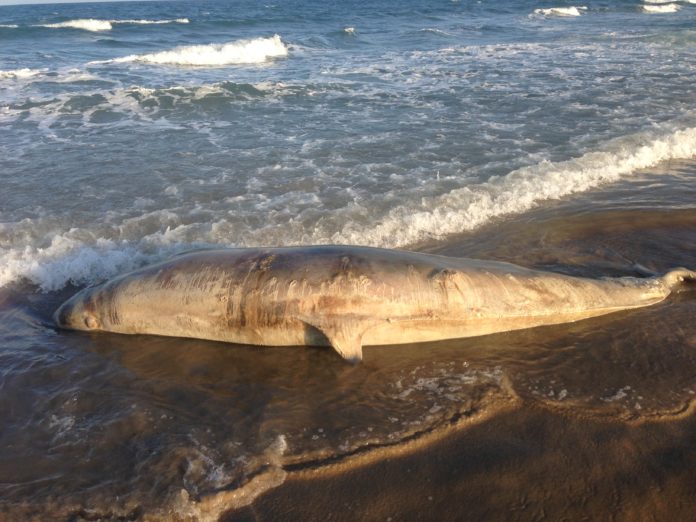Solar storms may be the reason why marine animals lose their way, leaving them stranded on beaches across the world, say scientists at NASA.
Marine animals such as dolphins, whales, and porpoises navigate their way around the oceans using magnetic field sensing. The experts opine that intense solar storms affect the Earth’s magnetic field, which may confuse the creatures, causing them to lose their way.
NASA has launched an investigation to determine what causes these strandings, which results in hundreds of marine animals being washed ashore.
The number of animals affected by a single stranding event could range from as less as three to a large group of hundreds. Experts say that these are more likely to occur in New Zealand, Australia, and Cape Cod in Massachusetts.
“These locations share some key characteristics, such as the geography, gently sloping beaches, and fine-grained sediment. We think all of these play some role in the events,” said Katie Moore, study collaborator and the director of the International Fund for Animal Welfare’s Animal Rescue Program.
The scientists have considered the role of human influences, like the use of sonar equipment.
“However, these human-made influences do not explain most of the strandings,” said Antti Pulkkinen, heliophycist at NASA.
“Theories on the cause include magnetic anomalies and meteorological events, such as extreme tides during a new moon and coastal storms, which are thought to disorient the animals. Magnetic anomalies could be at least partially responsible,” added Pulkkinen.
The study will determine whether there is a link between solar storms and beaching events.
“If we understand the relationship between the two, we may be able to use observations of solar storms as an early warning for potential strandings to occur,” said Moore.
“This would allow stranding responders around the world to be better prepared to respond, thus having the opportunity to save more animals.”




























